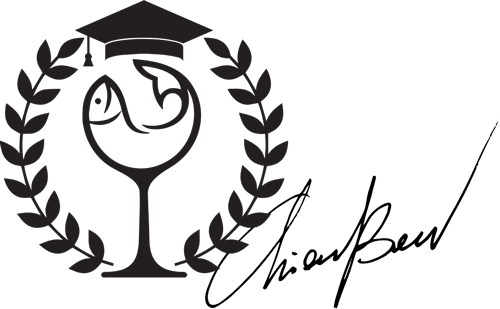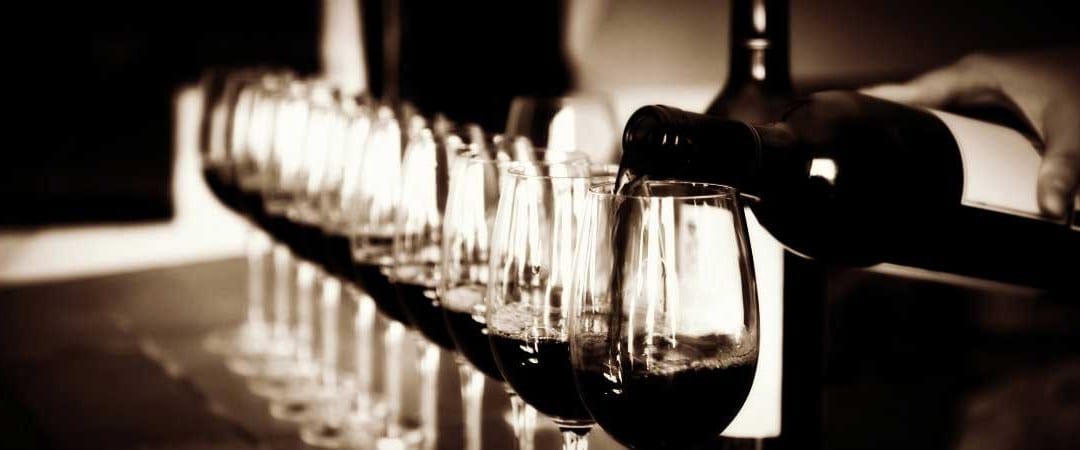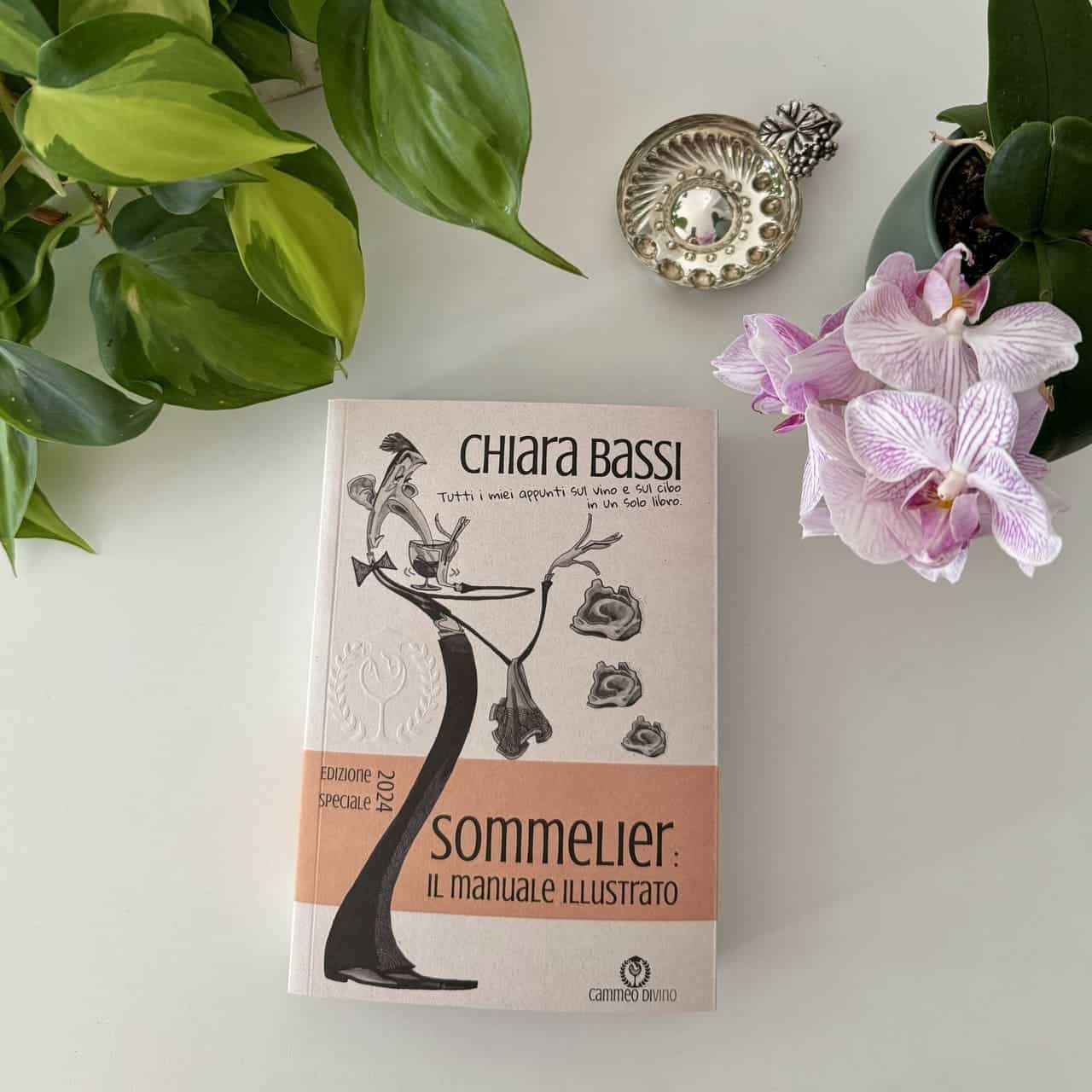[Update 22/5/2015] Today an aspiring sommelier named Elisa emailed me to ask for more information about the third-level AIS exam I recently took at the Alta Romagna delegation. She reminded me of a few things I had forgotten to write in this article... so I thank Elisa and publish these additions 🙂
In this article I want to tell you about how I passed the AIS examination and I became a sommelier. Over the last few days, I have received several e-mails from aspiring sommeliers preparing for their final exams... some were asking for advice, others for questions... so I have decided to summarise my experience in the hope that it will be of help to you! 🙂 🙂
"We are what we constantly do, excellence is a habit. "Aristotle
Here are the questions I have received in the last few days by e-mail... if something is missing, don't hesitate to ask me for help in a comment!
1. What were the questions you were asked (both written and oral) about?
At the written exam, the open questions I had were about: hard cheeses (list types and indicate combinations), the New Zealand wine-growing areasthe DOCs of the Campania region, the distillation process, the carbonic macerationsensations and combinations of pumpkin risotto in the food and wine pairing sheet, how the winery should be structured environmentally, quality in the vineyard, pairings with spicy foods, the difference between aromatic and aromatised wines, 10 grape varieties in Campania (which I did not know).
The difference between aromatic and aromatised wines: watch out for the shape!
What is the difference between aromatic and aromatised wine?
At the oral exam, the questions I was asked were about: the sommelier's toolsthe ceremonial servicecigar service, the frothingValtellina, Valpolicella, a match for Stilton, the Moulded wines, the food and wine pairing sheet.
2. Is there always a question about France?
They didn't ask me about France! In all honesty, the only thing I had studied at the time about France was Sauternes and, consequently, the Bordeaux area. At the oral exam, I took advantage of the fact that the second question I was asked was a pairing for Stilton to talk about Sauternes and musty wines (I'm big on Botrytis Cinerea!) so that the commissioner wouldn't ask it of his own accord (delegates cover your ears!In short... try to be clear-headed and 'pilot' your oral... I was actually quite tense due to the fact that I was going through a very complicated period and I didn't shine as I should have done... patience 🙂 🙂 I was very tense because I was going through a very complicated period and I didn't shine as I should have done... patience
3. Would you tell me the questions of the cross and multiple choice test?
Many questions can be found HERE. This list is constantly being updated!
4. Would you give me the abstracts you studied on?
Perlage Suite is my virtual library: all the material I study and have studied I share on this website... so enjoy browsing!
5. Is it possible to copy during the writing?
But what a question it is????! Of course not! I'm in the Alta Romagna Delegation and I can assure you that we didn't copy anything! Aggravating: Laura and I were in the front row so it was even worse! But in general copying is absolutely wrong and useless! What satisfaction do you get from copying an exam that is supposed to be the culmination of your career? Remember that the exam is a 70% study and a 30% fortune. The syllabus is vast and it's difficult to know everything, and this is where luck comes in... let them ask you what you know best... or at least what you know (unfortunately, I didn't have that luck... but I got away with it anyway!), but copying never makes sense! Also because you risk looking bad at the oral... so study!
6. How did you evaluate the wine during the tasting?
Here I want to take a second to tell you to believe in you. My first score was 88 points. I am usually very tight on marks and was surprised to have given such a high rating. Accomplice to the tension, as time ran out I asked a girl what grade she had given to my own wine and the answer was '76'. Instinctively, I corrected my evaluation as I was handing over by removing 2 points and thus giving an 86. This gesture of mine was absolutely useless because even if she had been right, my score was still off. The correct score for the wine was 88: I had understood the wine. But I did not totally trust me. You trust you.
"To spend too much time studying is laziness." F. Bacon
The time factor is crucial: we have all been afraid that the time for the written was too little, but I want to give you good news: it is balanced. If you are prepared and can answer the questions, the time is neither too much nor too little! I didn't know all the questions and I had some time left over... which I used to re-read what I had written. So don't worry, be calm and remember: the outcome depends only on you! And a little bit on your luck 😉
If, on the other hand, my site is not comprehensive enough for you and you need a few more paper books, I'll point you to a few useful ones that you can buy on Amazon without bleeding yourself dry 😉 ... they are readings that have inspired and taught me something, so I hope they are useful to you:
For other doubts or questions, write me a comment!
Good luck and let me know how it went!
A hug,
Chiara
P.S. I absolutely recommend you read these articles containing the questions (with my answers) from the 2015, 2016 and 2017 AIS exams... try to practise answering them too! There is nothing more useful for passing the exam!


